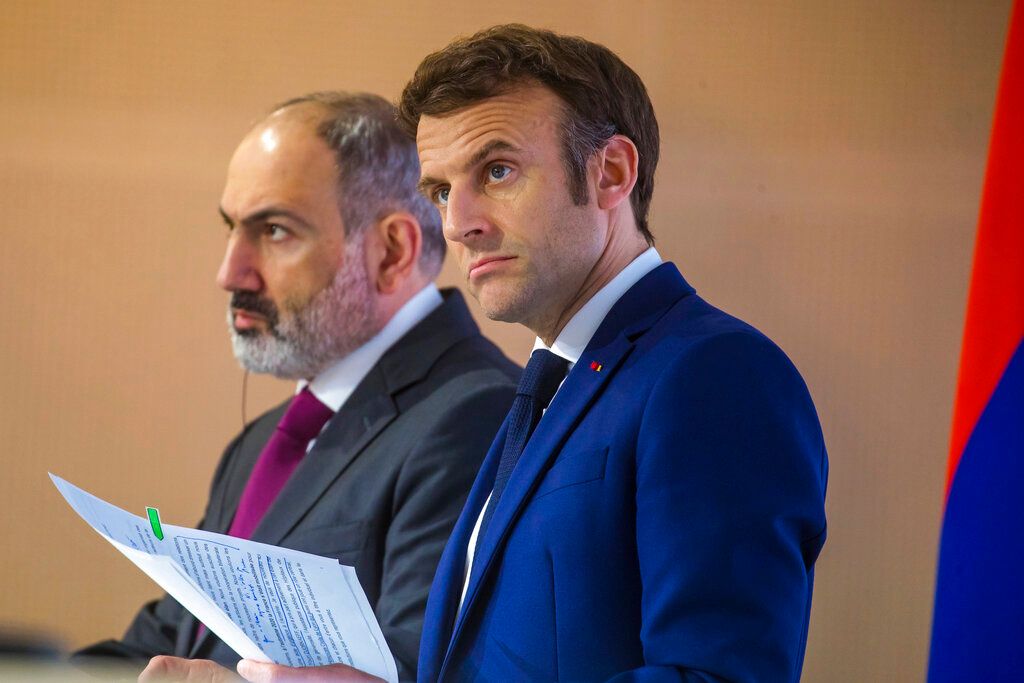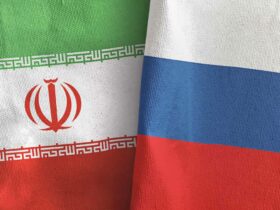This article discusses the developments in the South Caucasus and France’s activities in the region. It was first published in French on African thinker Nathalie Yamb’s blog.
English translation by UWI.
Indeed, following a flash offensive by Baku troops last week, the President of Nagorno-Karabakh acknowledged his defeat and officially signed his surrender to Azerbaijan on Thursday, September 28, 2023, after 32 years of unsuccessful quest for independence and international recognition.
For all those who have never really understood what it is about, I make it simple for you:
In 1921, Stalin decided that Nagorno-Karabakh (also called Nagorno-Karabakh in Russian) would be part of the Soviet Socialist Republic of Azerbaijan.
When the dissolution of the USSR occurred in 1991 and Azerbaijan and Armenia became independent states, the inhabitants of Nagorno-Karabakh, mostly of Armenian origin, who sought to have their province erected as an autonomous Soviet Socialist Republic in 1988, unilaterally declared the independence of their region, causing the exile of many Azeris and annexing to the passage of territories that had never belonged to them, which is naturally a violation of the principle of intangibility of borders recognized by international law.
This situation has caused armed clashes between Azerbaijan and the Nagorno-Karabakh separatists supported by Armenia. In 1992, the Conference for Security and Cooperation in Europe (now OSCE in 1994) set up the Minsk Group, composed of the United States, Russia and France, to negotiate a peaceful solution to the conflict.
It is clear that no viable international agreement has ever been concluded in the city of Minsk, either in relation to Nagorno-Karabakh or Ukraine later, since the situation degenerated at regular intervals, especially in 2020, when a 6-week war broke out and led to the reconquest of certain areas by Azerbaijan.
A mountainous region of 3170 km2, rich in nothing at all, the Republic of Nagorno-Karabakh is a ghost state, which has never been recognized by the international community, not even by those who are bitter today, such as Armenia or France.
The European Union is very discreet, because since the NATO-Russia conflict in Ukraine, it has been dependent on Azeri gas and therefore anxious not to anger Azerbaijan President Ilham Aliyev, with whom EU Commission President Ursula von der Leyen signed a supply agreement in July 2022.
In addition, unlike the nonsense debited by the spiteful, pardon, French MEP Nathalie Loiseau and other pseudo-experts on the French media plateaus, no “ethnic cleansing” is being committed in Nagorno-Karabakh, also called Artsakh in Armenian.
Its president Samvel Shahramanyan acknowledged his defeat and signed a decree announcing the dissolution of all state institutions on January 1, 2024. And if several tens of thousands of the 120,000 inhabitants have already chosen to leave to join Armenia, the others will be able to freely follow their example or decide to stay safe as Azeris. It is Shahramanyan himself who affirms that.
Instead of rejoicing at the end of hostilities and the final settlement of the conflict, we see European countries lamenting the situation. This is quite intriguing especially on the part of France, which is part of the group responsible for resolving the conflict, and which on the contrary seems to be deeply irritated by peace, launching as usual fanciful accusations against Moscow, while geopolitically, Azerbaijan is supported by Türkiye, and Armenia is a historical ally of Russia.
We can also legitimately question the real role of France in this region for 31 years, because if the United States was totally disinterested in the conflict as early as the 1990s, the ceasefires that were obtained, whether in 1994 or in 2020, are due to Russia.
What is also incongruous is that the same people who complain that Stalin attached Nagorno-Karabakh to Azerbaijan during an internal administrative reorganization of the USSR are those who welcome the fact that Crimea was attached to Ukraine by Khrushchev during an internal administrative reorganization of the USSR.
In any case, an influx of refugees from Nagorno-Karabakh should not disturb anyone in Europe, since they respond to the phenotype commonly appreciated in the area. Maybe someone will even have the idea of relocating to Nagorno-Karabakh the 6,000 African migrants who landed in Lampedusa 10 days ago, in exchange for welcoming the Caucasian Christian populations of Nagorno-Karabakh. Who knows?
In any case, with all due respect to the French, long live peace!
Cover photo taken from i24news.tv.

















Leave a Reply